In Egypt, a country whose capital was announced to be one of the top polluted cities globally, innovation and entrepreneurship can contribute massively to promote solutions for improving the environment.
Eco Experts, in July 2018, released a report on the global levels of pollution for air, noise, and light, in which it listed the most and least toxic cities in the world.
“Cairo tops the worst ten list, followed by Delhi, Beijing, Moscow, Istanbul, Guangzhou, Shanghai, Buenos Aires, and Paris,” stated Forbes magazine, citing the report.
In addition, the World Health Organization (WHO) carried out a study in the period from 2011 to 2015 and released its results in May 2018 stating the top cities in air pollution; Cairo ranked the second most polluted city globally after India’s New Delhi.
The Egyptian Ministry of Environment issued a statement refuting Eco Experts’ claim, saying that there were flaws in terms of the methodology and results.
In its endeavors to introduce new means of waste management, The Ministry of Environment launched “Sell your garbage” project in 2017. The project aimed to encourage people to sell their trash bags to the project kiosks instead of throwing them away. In 2014, The Ministry also initiated a project to raise awareness among the public on the importance of sorting garbage bags into organic and solid piles.
These initiatives are complemented by the unofficial efforts of Egypt’s community to make the best use of wastes, such as the “Zabbaleen’’ community in Manshyet Nasser where thousands of garbage collectors have been since the 1980s; the collectors collect and recycle around 5,000 tons of trash daily from across Cairo.
Environmental challenges are and will remain an alarming national security crisis if decision makers and entrepreneurs don’t leverage awareness, technology, and capital to yield an inclusive change.
Some of Egypt’s entrepreneurs, playing in the arenas of civil society and environment, are takint various approaches to face environmental problems using strategies overarching waste management, recycling, and upcycling.
On their mission to face the problem of the polluted capital, these Egyptian startups took it upon themselves to ‘reuse’ the problem, introduce economic developments and generate environmental improvements.
From the green enterprise Greenish to upcycling studio Mobikya, and agricultural waste recycling NGO El Nafeza, various social enterprises are trying to integrate entrepreneurship with an environment-friendly mission, capitalizing on agendas that encourage the culture of a more sustainable living and waste management.
Greenish
Built with a mission to drive sustainable environmental solutions through awareness related projects, Greenish, a green social business, targets working with schools, NGOs, retails and restaurants. Not only does it provide educational projects with the main focus on the importance of environmental preservation, but it also introduces a new paradigm to teach the significance of self-expression and living greenly through art.
Shady Abdallah, the co-founder and Managing Director of Greenish, highlights the inevitable incorporation of innovation and creativity to introduce a holistic solution to the problem, “The environmental crisis in Egypt leaves a huge space for innovation to partake and offer a wide array of functional solutions to discard the wastes.”
Shady says, “There are two loopholes to solve the problem: the first is the widely used technique of recycling the wastes in factories, the other way out is the mentality we adopt here at Greenish, and it is a more sustainable technique, which focuses on reducing the consumption of plastics and other non- renewable materials and which will result in fewer amounts of wastes.” This is the vision Greenish is established on and which they try to circulate through their awareness campaigns.
Shady elaborates that recycling the wastes, albeit plummeting the problem temporarily, does increase it as the factories that recycle the wastes release harmful emissions, while still producing plastic products that will be consumed once more.
Greenish is launching its e-commerce website soon; “it is going to be a platform to spread the culture of embracing a more sustainable lifestyle. It will display the products with the least wastes and thus promoting a culture with a more sustainable lifestyle,” Shady says.
He encourages engaging the community to solve the problem, “The garbage collectors’ community, in Manshyt Nasser, is the most powerful player in the game, meaning that their work to collect, reuse and recycle the piles of wastes is vastly efficient, not on a small scale but Cairo-wide.”
He believes that it is the most powerful stakeholder in the solution, “the government and civil society ought to consider engaging with the Zabaleen community more.”
Mobikya
Air pollution caused by burning scrap tires has its irredeemable health impacts, this inspired avid architect and designer Ibrahim Abu Gendy to found Mobikya in 2016.
The two- year upcycling design studio utilizes the discarded materials, such as old tires and plastic boxes, instead of disposing them in a way that results in dire environmental effects, to produce creative and clean decorative pieces.
Ibrahim Abougendy, the founder of Mobikya studio, believes that the situation in Cairo is not very bad, “The map of the most polluted cities in the world is not static. The coming 10 years will witness a huge change in this map. In such case, startups are key-players for they lead real environmental solutions.”
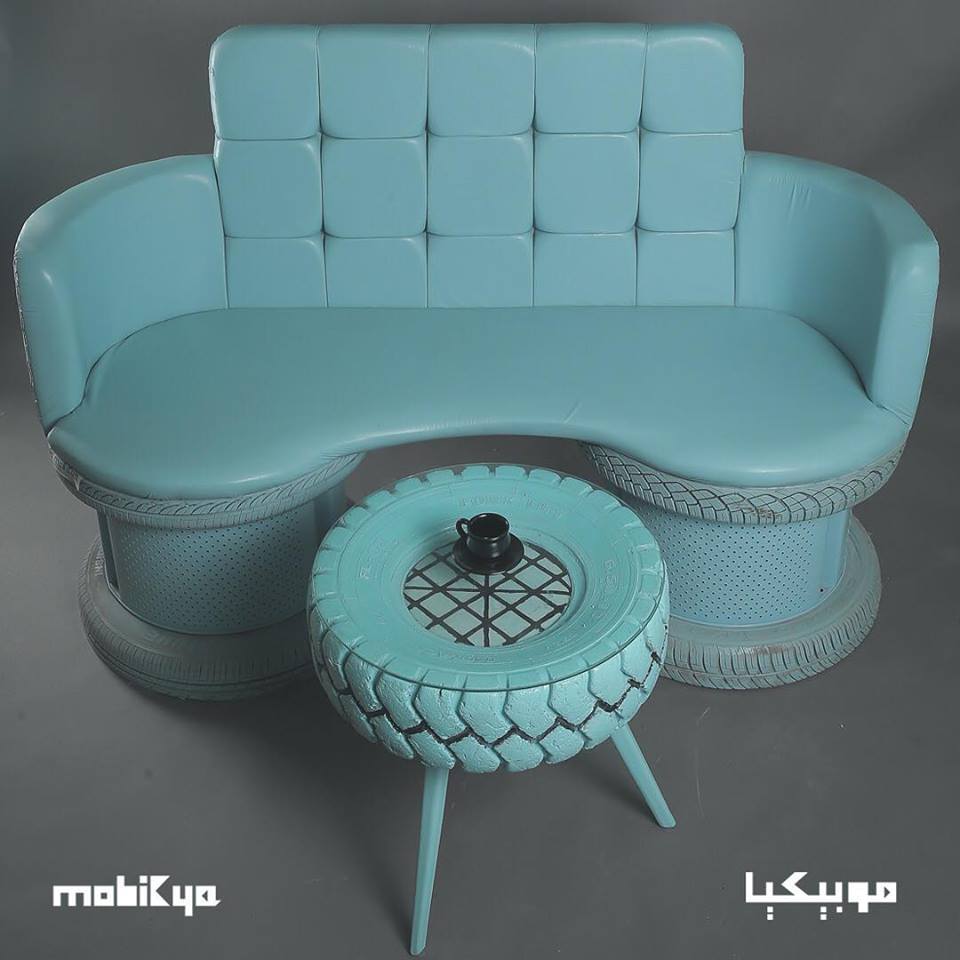
“The recycling factories are responsible for releasing big percentage of the toxic emissions; air pollution causes high rates of leukemia. In Mobikya we depend on the upcycling model,” Abu Gendy says.
“Cairo may be one of the top polluted cities, but innovation-based projects are leading the movement of offering functional yet mass prevalent solutions. Actually, Cairo is very good at solving its problems; 90% of the wastes are recycled by the Zabbaleen community.”
Abou Gendy believes that the government can play a keynote role together with the private sector.
“The government can establish a consultancy or research center, opening channels with the private sector to cooperate and implement on-ground national projects. Abu Gendy adds, “Every startup can be specialized in a type of solid waste and build an ecosystem around the different kinds of wastes. The government has big space to set a plan to turn the solid wastes into products, in cooperation with these startups. They can provide a floor for these startups to authorize organizing the whole process.”
Up- fuse
From designing sustainable and eco-friendly lifestyle products to supporting local artisans in Egyptian marginalized communities, Up fuse is known as an eco-conscious and lifestyle studio.
It was founded by both Yara Yassin and Rania Rafie, and it streamlines a technique to upcycle plastic bags using sustainable materials while creating high-quality accessory bags.
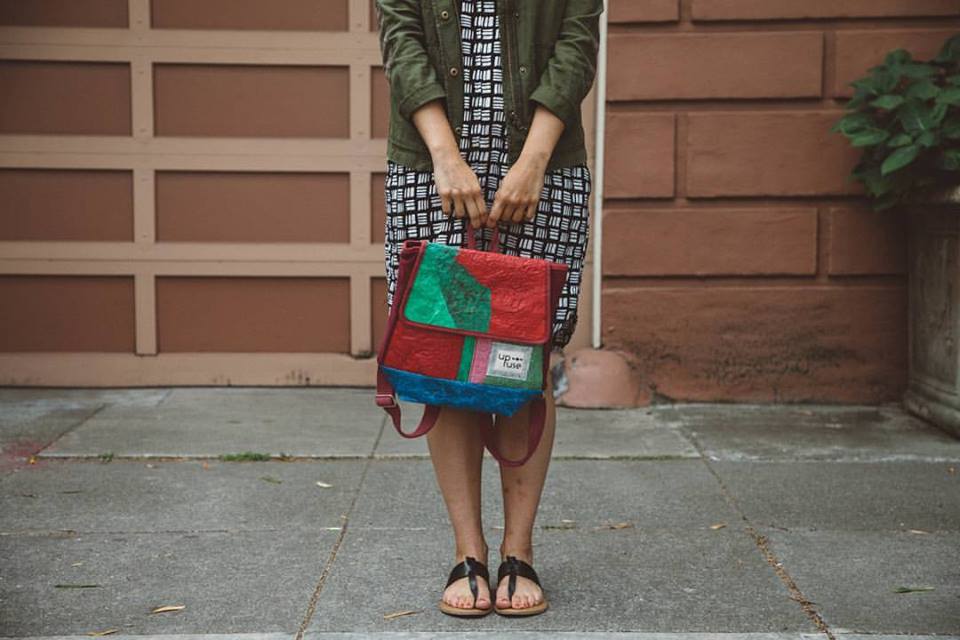
Upfuse addresses the environmental and social issues by reusing the discarded plastic bags “which have proved can take up to 1000 years to decompose,” as cited on Upfuse website.
Yara Yassine, co-founder and Design Director of UpFuse, believes that Startups can start working on direct environmental challenges using alternative materials and to create awareness among communities, “They can work on producing less waste in their production process, recycle their waste or give them to entities who do so.”
Yara sees that the government has a long way ahead addressing the dilemma, “firstly, the government has to ban certain plastics and has to find peace with the garbage community as they are not on good terms and you can see how horrible our streets are.” Yassin added that the government should support the startups which work on the environmental challenges by decreasing their taxes, “the government can collaborate with startups to spread awareness.”
On the other side, Yassin believes that awareness campaigns are very important to address the problem, “People survive their everyday life in very unhealthy ways. I believe that the government should start looking into ways to reduce the pollution of the individuals, as on the production level, factories emit toxic chemicals, but it is very few compared to the pollution resulting from the individuals, we are almost 90 million producing waste every day.”
El Nafeza
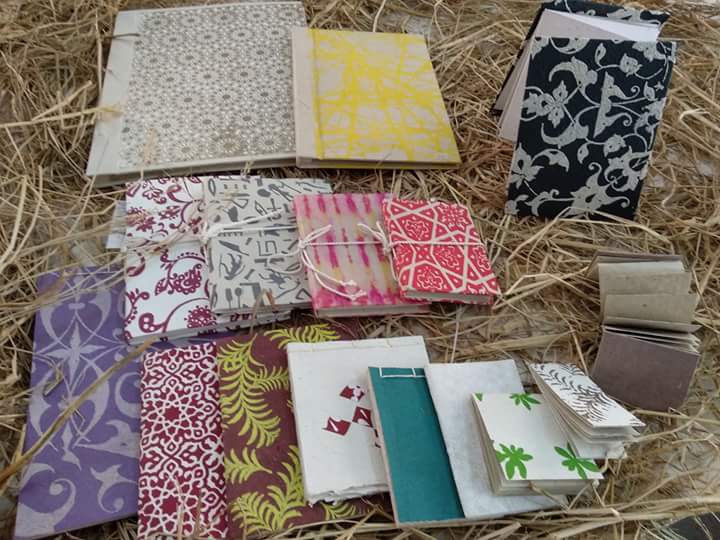
The disposal of agricultural wastes plays a big role in Egypt’s air pollution. Every year, burning the rice straw results in a big black cloud covering all the capital and lasting for almost 3 months, leaving behind fatal health impacts. Due to the inability to easily dispose of the rice crop wastes, many farmers burn the straw at the end of every harvest season, despite the government’s ban since 2012.
“A lot of resources can be derived from recycling the agricultural wastes, such as fertilizers, feed or coal,” says Enas Khamis, the founder of El Nafeza NGO. El Nafeza takes advantage of the huge amounts of dumped rice straw and works for both humanity and the environment. It employs people with disabilities to recycle the rice straw and create paper products.
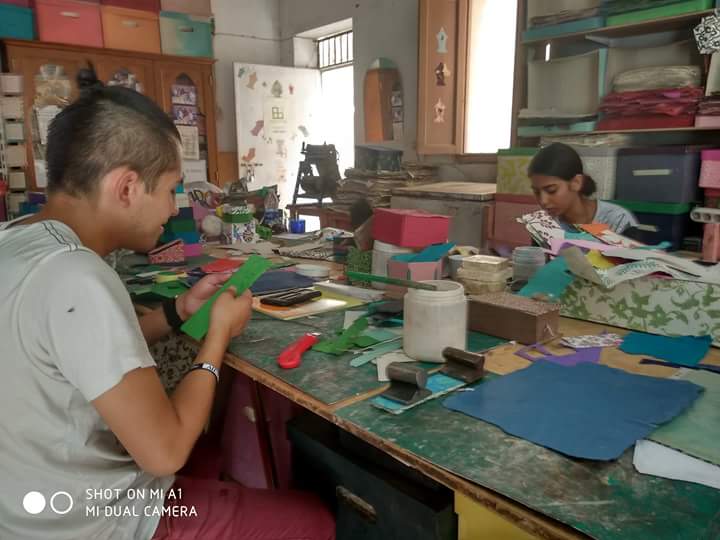
Khamis said that El Nafeza or similar companies play a pivotal role in the solution. She added that it would be more efficient if the private sector expands into other Egyptian governorates, “as we, work in recycling the agricultural waste, ourselves bring the waste from outside Cairo,’ Khamis said. She added, “these startups are an engine that not only helps to turn the wastes into products but also provide employment opportunities.”



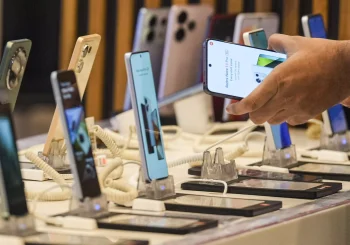
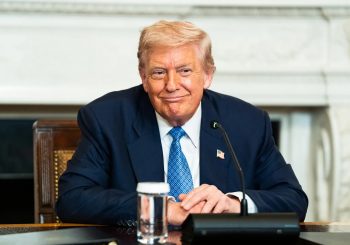
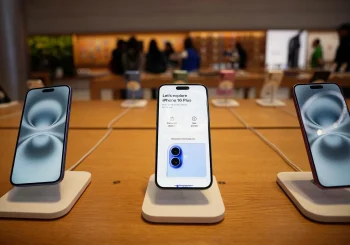
Comment (1)
[…] Egyptian Start-Ups are Saving the Environment These Egyptian Start-Ups are Saving the Environment These Egyptian Start-Ups are Saving the Environment These […]